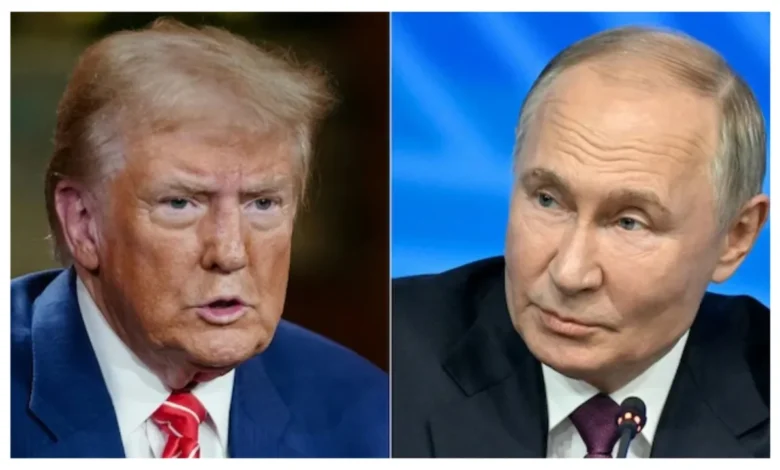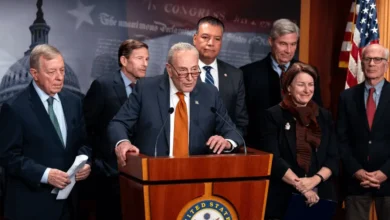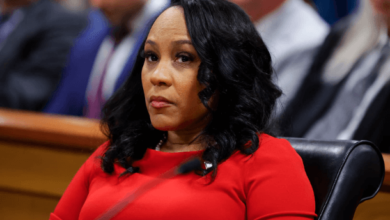“Completely False”: Kremlin Denies Phone Call Between Putin and Trump Amid Ukraine Conflict Speculations

The Kremlin has categorically dismissed recent claims about a phone call between Russian President Vladimir Putin and U.S. President-elect Donald Trump. On Sunday, a report from The Washington Post asserted that Trump called Putin to discuss Ukraine’s ongoing conflict. However, Kremlin spokesperson Dmitry Peskov labeled the report as “completely false information,” stressing that no such communication has occurred. Here’s a detailed analysis of the incident, the surrounding context, and potential implications for U.S.-Russia relations and the Ukraine conflict.
1. Overview of the Alleged Putin-Trump Call
On Sunday, The Washington Post published a report alleging a private conversation took place between President-elect Donald Trump and President Vladimir Putin. According to the report, the leaders discussed Ukraine’s ongoing conflict and the potential for diplomatic negotiations. This claim emerged amid heightened global interest in Trump’s foreign policy agenda following his recent election victory.
2. Kremlin’s Firm Denial of the Alleged Call
Kremlin spokesperson Dmitry Peskov was quick to refute these claims, calling the Washington Post report “completely false.” He asserted that “no phone call whatsoever” took place between Trump and Putin. Peskov’s immediate and unambiguous denial underscores Moscow’s sensitivity to how Russia’s relations with the new U.S. administration are perceived internationally.
3. Claims in The Washington Post Report
According to anonymous sources cited in the Washington Post, Trump allegedly contacted Putin from Mar-a-Lago, his Florida residence and resort. The report suggested that Trump might have “reminded Putin” of the U.S.’s significant military presence in Europe and indicated an interest in future conversations to resolve the Ukraine conflict. These unconfirmed claims drew swift rebuttals from both Russian and U.S. officials.
4. Background: Trump’s Conversations with Zelensky and Musk
Days before the Washington Post’s article, President-elect Trump had reportedly spoken with Ukrainian President Volodymyr Zelensky. Trump and his advisor Elon Musk reportedly congratulated Zelensky on his leadership, with Musk joining the call from Trump’s Mar-a-Lago estate. The contents of the conversation have not been publicly disclosed, but reports from Axios indicated that Musk’s comments left Zelensky feeling “somewhat reassured.”
5. Analysis of the Trump-Zelensky-Musk Phone Call
The Trump-Zelensky-Musk call highlighted Musk’s growing influence in international affairs, given his company’s Starlink satellite services that have been vital to Ukraine’s military communications. With Musk’s involvement, the conversation reportedly centered around U.S.-Ukraine relations and the ongoing conflict with Russia, though specifics remain confidential.
See also: USMCA Trade Deal Review in 2026: Key to the U.S.-Mexico Relationship Under Trump’s Second Term
6. Elon Musk’s Potential Role in U.S.-Ukraine Relations
Musk’s role in this high-stakes conversation has drawn considerable attention. His Starlink satellites have empowered Ukraine’s defense forces by facilitating real-time communication and data-sharing, even in areas where traditional networks are down. Analysts speculate Musk could play an influential advisory role in Trump’s foreign policy, particularly concerning technology-driven defense strategies.
7. Historical Context: Trump and Zelensky’s UN Meeting
In September, Trump met with Zelensky at the UN General Assembly in New York. During that meeting, Trump reportedly told Zelensky, “I promise you will be happy with me,” hinting at his administration’s supportive stance toward Ukraine. This comment has raised questions about whether Trump’s administration would change the current U.S. policies on the Ukraine conflict.
8. Contrasting Demands: Putin vs. Zelensky
As the Ukraine conflict persists, the demands of Putin and Zelensky remain firmly at odds. Russia has insisted on Ukraine’s withdrawal from eastern and southern territories as a precondition for peace, a stance Zelensky adamantly rejects. Ukraine’s president argues that any territorial concessions would embolden the Kremlin and increase the likelihood of further aggression.
9. Implications of U.S. Policy Changes on Ukraine Conflict
The anticipated changes in U.S. policy under Trump’s administration could significantly affect the conflict’s trajectory. Trump’s previous statements suggest he aims to adopt a more diplomatic approach, but whether this involves concessions to Russia remains uncertain. Analysts believe Trump’s approach to the Ukraine crisis may differ considerably from Biden’s more militarily supportive stance.
10. The Outgoing Biden Administration’s Final Support Measures for Ukraine
In the final weeks before Trump’s inauguration, President Biden’s administration is focused on delivering as much support to Ukraine as possible. National Security Advisor Jake Sullivan recently stated the goal is to “put Ukraine in the strongest possible position on the battlefield.” This approach includes utilizing the remaining $6 billion in military aid before the transition of power.
11. Public Reactions and International Perspectives
Both the alleged call between Putin and Trump and Musk’s involvement in U.S.-Ukraine relations have fueled widespread speculation. While Moscow firmly denies any communication between Putin and Trump, some U.S. political analysts suggest Trump’s administration might still consider re-engaging diplomatically with Russia.
12. Experts’ Opinions on U.S.-Russia Relations Post-Inauguration
Political experts foresee Trump potentially leveraging his re-election to reshape U.S.-Russia relations, particularly in resolving the Ukraine conflict. While no details have been confirmed, observers argue that Trump’s approach may prioritize diplomacy over direct military involvement.
13. Media Influence and “Fake News” Allegations
The Kremlin’s labeling of The Washington Post’s report as “fake news” illustrates ongoing tensions between the media and government entities, particularly regarding sensitive geopolitical issues. This episode underscores the importance of verifying information through reliable channels, especially in an era of rapid digital information dissemination.
14. Speculations on Trump’s Foreign Policy Direction
With Trump’s return to the presidency, speculation abounds regarding his potential foreign policy changes. Some experts argue that Trump might seek to negotiate a peace settlement with Russia, reflecting his stance of “ending wars” rather than initiating new ones. However, the specifics remain uncertain as his team formulates its policy framework.
15. Conclusion: What’s Next for U.S.-Russia Relations?
In the coming months, all eyes will be on the unfolding dynamics between the U.S. and Russia. Trump’s administration will likely face challenges in balancing a diplomatic approach with the need to support Ukraine. As global stakeholders anticipate Trump’s formal inauguration, the world waits to see how his administration will navigate the complex web of international relations, particularly in Eastern Europe.
Frequently Asked Questions (FAQs)
1. Did Putin and Trump actually have a phone call as reported?
- No, the Kremlin has firmly denied the report from The Washington Post, calling it “completely false information.”
2. What role did Elon Musk play in the Trump-Zelensky conversation?
- Elon Musk reportedly joined the Trump-Zelensky call, where he reassured Zelensky of Starlink’s continued support, highlighting Musk’s influence in the Ukraine conflict.
3. How might Trump’s approach to Russia differ from Biden’s?
- Trump has indicated he may prioritize diplomacy in foreign affairs, potentially aiming for negotiations with Russia, which would contrast with Biden’s more direct military support for Ukraine.
4. What did Trump previously say about ending wars?
- In his victory speech, Trump emphasized his goal to end wars, suggesting a possible shift towards peace talks rather than military escalation.
5. Is the U.S. still sending aid to Ukraine?
- Yes, the Biden administration has committed to using the remaining $6 billion in aid funds for Ukraine before Trump’s inauguration.
6. What does the Kremlin’s response reveal about Russia’s position?
- The Kremlin’s quick dismissal of the report demonstrates its sensitivity to maintaining control over the narrative of Russia’s foreign relations and its strong stance on information accuracy.



